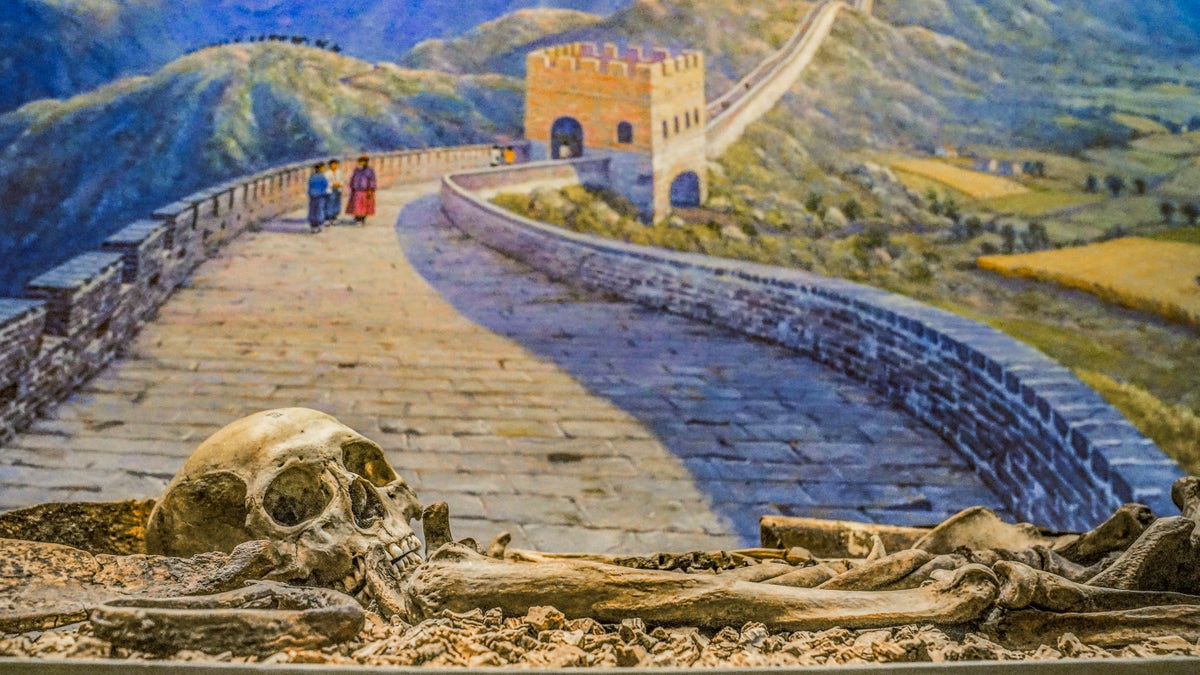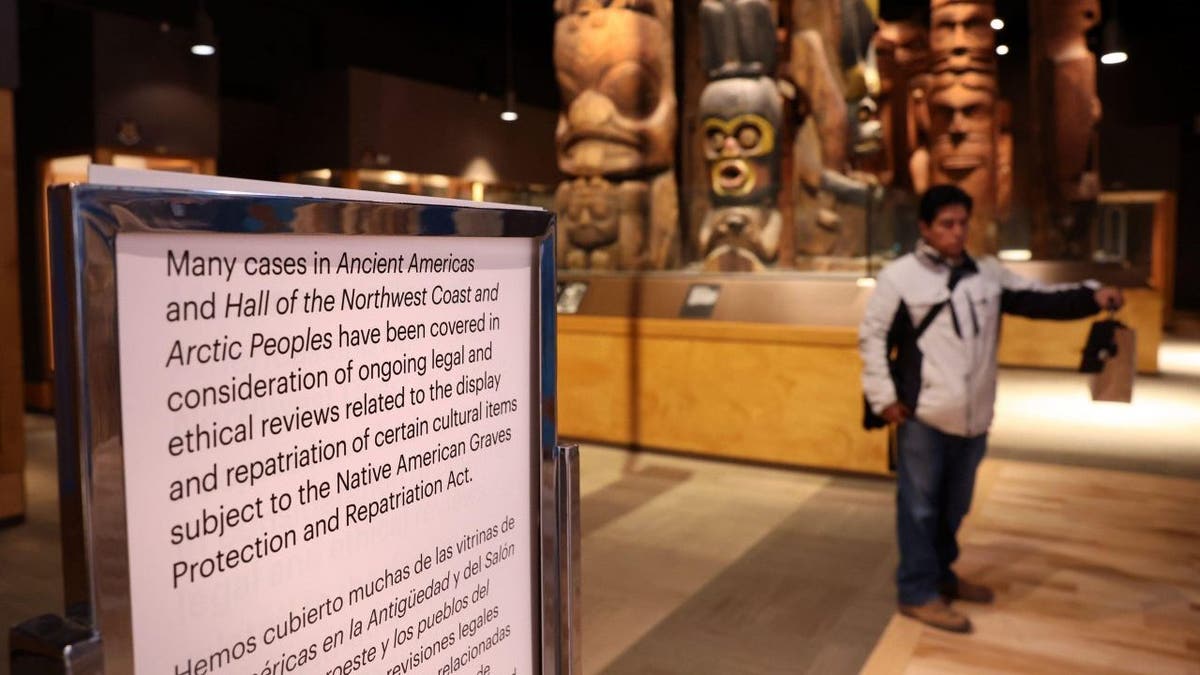Fox News Flash top headlines for January 26
Fox News Flash top headlines are here. Check out what's clicking on Foxnews.com.
The American Museum of Natural History announced the closure of two Native American exhibits on Friday, citing concerns over tribal consent.
The Manhattan museum, one of the most famous in the country, made the decision after the federal government passed regulations requiring museums receive assent from tribes before displaying cultural artifacts to the public.
"The halls we are closing are artifacts of an era when museums such as ours did not respect the values, perspectives and indeed shared humanity of Indigenous peoples," museum president Sean Decatur said in a Friday letter, according to The New York Times.

The skeletal remains of a warrior discovered in Outer Mongolia in 1925 are displayed before their removal from public viewing at the American Museum of Natural History. (AP Photo/Bebeto Matthews)
He added, "Actions that may feel sudden to some may seem long overdue to others."
The two canceled exhibits showcased Native American cultural items from the Eastern Woodlands and Great Plains.
President Biden's administration has attempted to hasten the repatriation of Native American remains and cultural objects.
New federal regulations were put into effect this month that expedite the processes outlined in the 1990 Native American Graves Protection and Repatriation Act.
Museums, universities, and other institutions are now required to begin repatriation of human remains or relevant cultural items within five years.

Messages for the public greet people upon arrival in the Halls of the Ancient Americas and the Hall of Northwest Coast and Arctic Peoples at the Field Museum in Chicago. (Chicago Tribune)
A major change is the sweeping power given to tribal leaders and representatives in making claims on museum property and requesting repatriation.
CLICK HERE TO GET THE FOX NEWS APP
The federal regulations rolled out earlier this month greatly loosen the burden of proof for tribes to make claims on objects or remains.
Institutional curators are required to "defer to the Native American traditional knowledge of lineal descendants, Indian Tribes and Native Hawaiian organizations" in lieu of missing historical documentation.











































